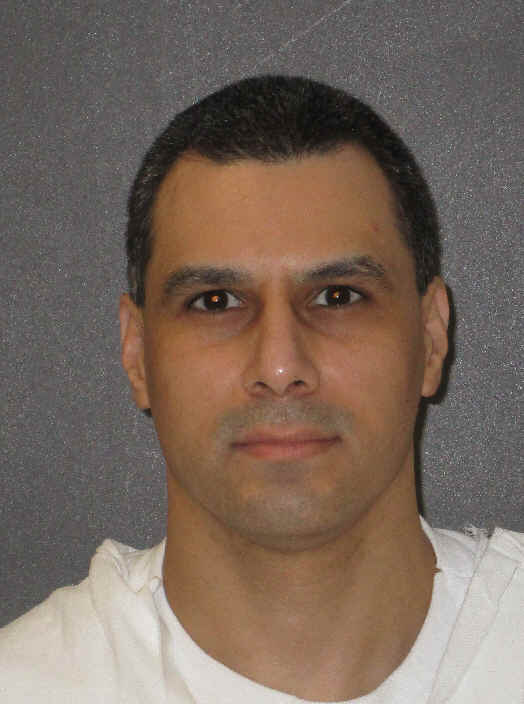Here's why the US Supreme Court halted Texas death row inmate Ruben Gutierrez's execution

Texas inmate Ruben Gutierrez came within 20 minutes of his death by lethal injection before the U.S. Supreme Court intervened Tuesday evening, indefinitely staying his execution for the murder of 85-year-old Escolastica Harrison.
The victim's family had driven six hours from Brownsville to the prison in Huntsville and Gutierrez was awaiting being brought into the execution chamber. If Texas hadn't abolished last meal requests in 2011, he would have already feasted on the items of his choice.
Convicted of stabbing Harrison to death more than 25 years ago, Gutierrez has long maintained that DNA testing of evidence would exonerate him. His attorneys say there is no physical or forensic evidence connecting the 47-year-old man to the Brownsville killing. Two others were also charged in the case.
But Gutierrez's repeated pleas have largely been unsuccessful in both state and federal courts.
In this appeal, Gutierrez's attorneys argued that the Fifth Circuit Court of Appeals violated federal precedent when it threw out a lower court's ruling finding a limitation in Texas' DNA testing statute was unconstitutional.
For the murder victim's family, Cameron County District Attorney Luis Saenz said, the last-minute change is devastating − and made more so by the fact that they found themselves in the same place four years ago.
In 2020, Harrison's relatives and Saenz drove to the Huntsville prison to witness the execution of who they believe killed her. "We were receiving final instructions on how we were going to be escorted into the chamber," Saenz said, when the phone rang. That time, the Supreme Court halted the execution on the basis that Texas' prohibition on religious advisers in execution chambers violated his religious freedoms.
"How do I explain to them, 'Well, it didn't happen again, even though you traveled for six hours to get here?'" Saenz said, speaking to the Statesman while he drove home from the prison Tuesday night. "I mean, how many more times are they going to be put through this?"
Saenz noted that in this case, the last filing had been turned in on July 11, five days before the high Court issued a last-minute stay.
"It's just heartbreaking. I just feel terrible for (the family)," Saenz said. "I understand that the courts do what they have to do, but why do they have to wait until the last minute?"
Gutierrez's attorney Shawn Nolan celebrated the Court's decision, hopeful that it would pave the way for his client to be freed.
"We are hopeful that now the Court has stepped in to stop this execution, we can ultimately accomplish the DNA testing to prove that Mr. Gutierrez should not be executed now or in the future," attorney Shawn Nolan said in a statement Tuesday night.
The high court decision temporarily pauses Gutierrez's case pending further proceedings, which will allow the justices to weigh whether to grant a hearing in the case. The stay could be lifted if they later decide to reject the case.
This article originally appeared on Austin American-Statesman: US Supreme Court intervenes 20 minutes before Texas man's execution
